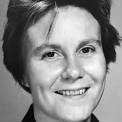
There is a scene in the 2005 film Capote where the attention-seeking Truman Capote is working a room full of adoring listeners and Harper Lee passes him by. There is a brief conversation that tells us everything about both writers. Capote and Lee were childhood friends and Lee supposedly helped him in the research of In Cold Blood, the definitive book of the former’s career. Lee ofcourse quietly won the Pulitzer for fiction after writing To Kill a Mockingbird, one of the most influential books ever written. In this scene, most of this information is not available to us yet we see with stunning clarity that Capote is a production artist, sucking life fuel from admirers and always resentful of another successful writer. In this case, Lee.
**
Lee, we observe, is sealed against all the corruption that the world of writing brings when it becomes a grandstanding game rather than what it is. A gnawing compulsion that must outgrow the need for approval if it has to thrive. Or as Lee said with her signature economy, “Any writer worth his salt writes to please himself.” A process, that she said, is endless and is, “An exorcism of not necessarily his demons, but of his divine discontent”. The fact that she remained secure enough to not need her success even though it was hers for the taking and never played any part in keeping the buzz around her name alive, brings me huge comfort. As do her words, “People in their right minds never take pride in their talents.”
**
Like Capote, she never indulged in self-promotion or went with singular determination after the influencers of the New York society. After her success, she did not write another novel because she did not want to be a plaything of the market forces baying for another best-seller. In her 89th year, after a stroke when she was confined to little more than an assisted existence, Go Set a Watchman, the first “failed” draft of To Kill a Mockingbird was released with a big shovel of media and publishing manipulation thrown in. No one knows what Lee thought of the way the book was marketed and sold and even the statement where she supposedly said, “I’m alive and kicking and happy as hell with the reactions to Watchman,” did not seem to have come exactly from her mouth. But it does not matter now. She is gone. After living a lifetime on her own terms.
**
For me personally, To Kill a Mockingbird is not just a book that shows us the worst and the best in the human race, the ugliness that comes with a place varnished with privilege and cruel entitlement. And ofcourse enduring lessons in heroism that still show us how much we have to evolve as human-beings in a world splintered by violence, injustice and prejudice. And the important things. Empathy…where you climb inside the skin of an alien perspective and walk around in it. Courage… where you keep your head high, your fists down but fight with all that is within your heart and head. Courage…where you know the odds but you persist. Conscience that commands that you listen to yourself more than you listen to the voices of regimentation.
**
I just cannot separate the book from the author. I remember her when I see many writers engaged in the undignified clamour for column inches, for spotlight or when writers ask other writers, “So what have you done since your first book? Not fiction, surely.” I remember her when I question whether writing has brought me what I was looking for in life. When am told marketing is as important as working on your craft. When success in writing is equated with viral articles, the number of times you are retweeted, who endorses your book and who comes at your book launch. I draw comfort from the fact that success is not about writing a novel as successful as To Kill a Mockingbird. It is about holding on to what is most important in the world. Your own sense of self. And Lee succeeded at just that and died the way she lived. In complete privacy or as a tribute said, ” surrounded by books and the people who loved her.”
**
What more can you ask of life or death or a writer who stayed integrated with a state of divine discontent? Who remained whole. Impervious to rules she did not buy or sell herself to. Thank you Harper Lee. For teaching us integrity. For teaching us not just how to write. But how to live.
Reema Moudgil is the editor and co-founder of Unboxed Writers, the author of Perfect Eight, the editor of Chicken Soup for the Soul-Indian Women, a translator who recently interpreted Dominican poet Josefina Baez’s book Comrade Bliss Ain’t Playing in Hindi, an RJ with Timbre Media and an artist who has exhibited her work in India and the US and is now retailing some of her art at http://paintcollar.com/reema. She won an award for her writing/book from the Public Relations Council of India in association with Bangalore University, has written for a host of national and international magazines since 1994 on cinema, theatre, music, art, architecture and more. She hopes to travel more and to grow more dimensions as a person. And to be restful, and alive in equal measure.





